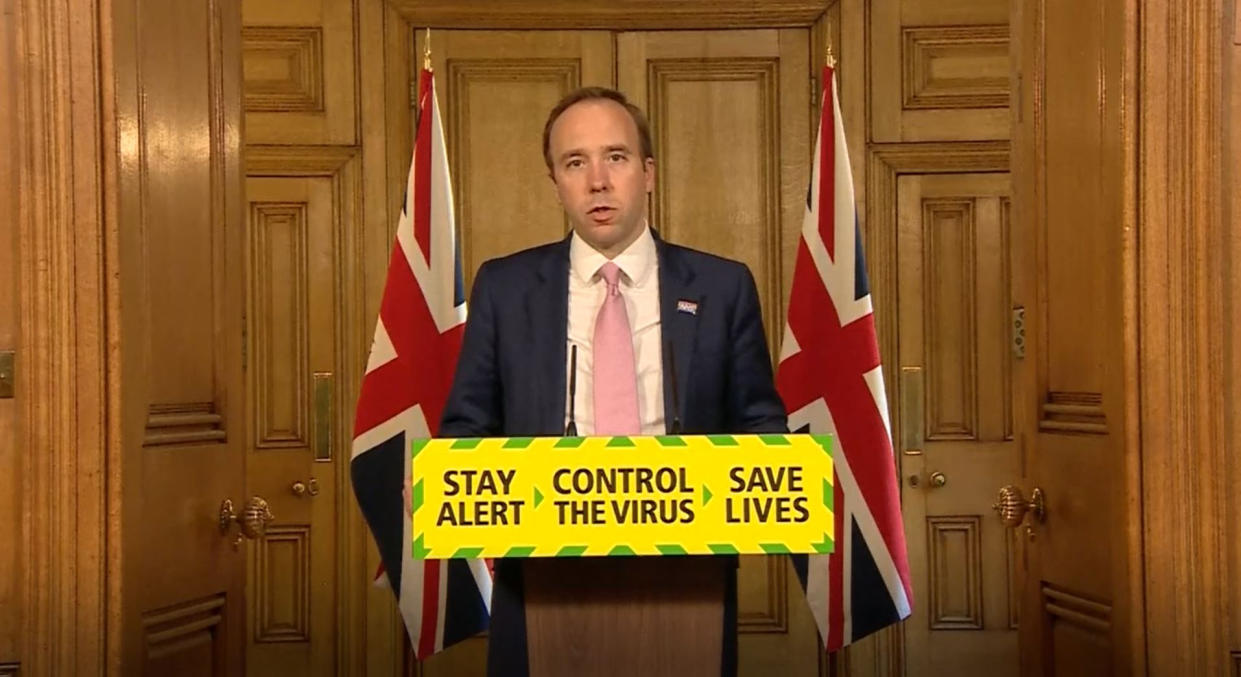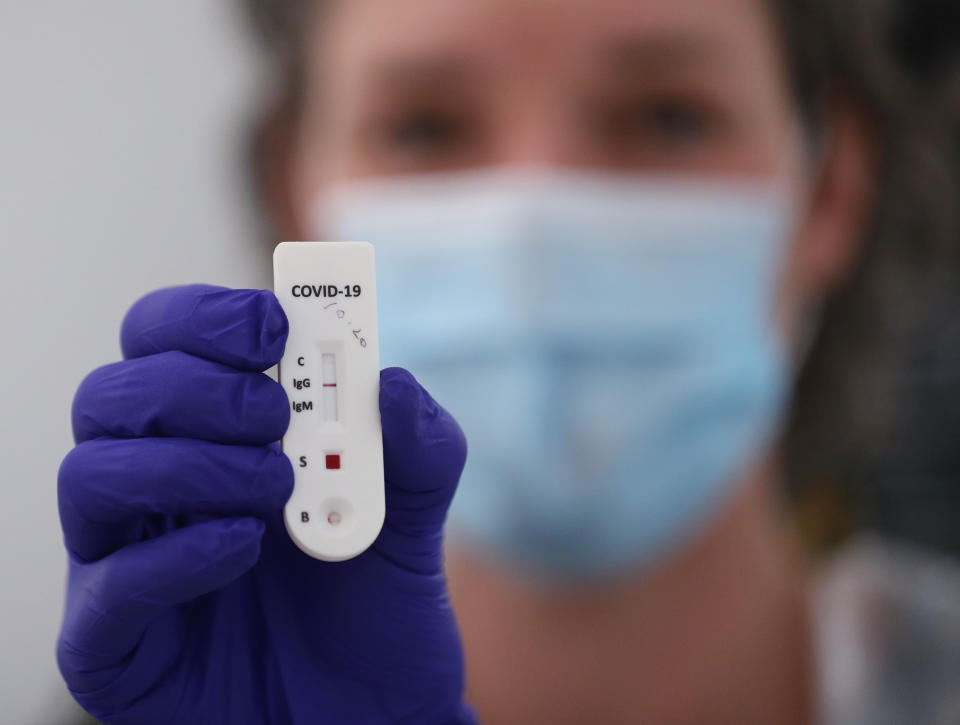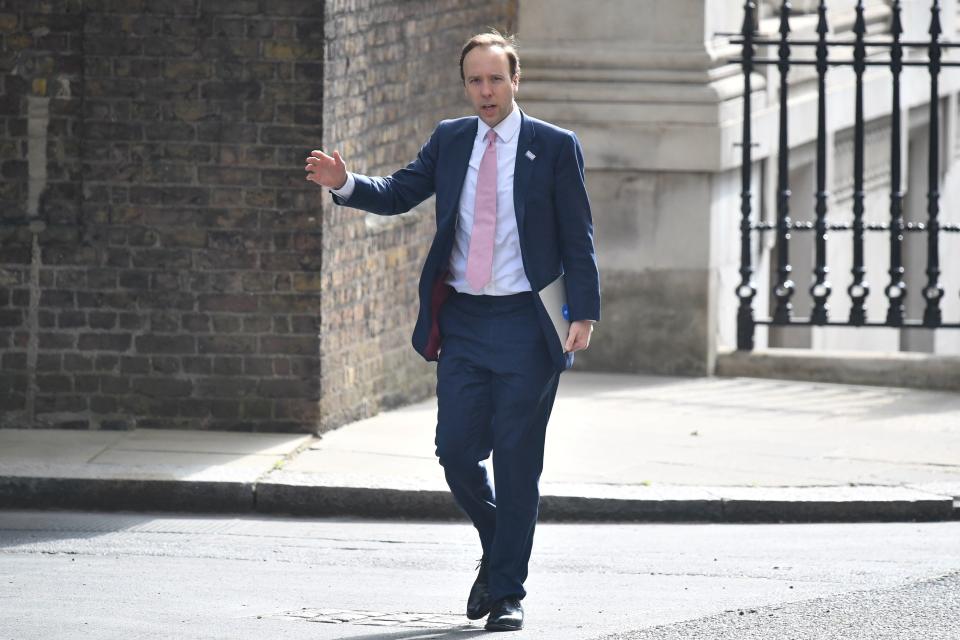Just 5% of people outside London have had coronavirus, government confirms

Some 17% of people in London and about 5% across the UK have had coronavirus, according to the government’s antibody surveillance study.
Health secretary Matt Hancock told the daily Downing Street briefing that the results of the study into how many people have developed antibodies for the virus.
He said: “This has told us that around 17% of people in London and around 5% or higher in the rest of the country have tested positive for coronavirus antibodies.”
Hancock also revealed the government has bought up 10 million antibody tests to begin testing how many of the population have had the virus.
Scientists are not yet sure whether having the antibodies means you are immune to coronavirus.
The tests will be "free for people who need them" and priority will be given to NHS staff and care workers.
Hancock said the devolved administrations of Wales, Scotland and Northern Ireland will decide how to use their test allocation.

He told the briefing: “We’ve signed contracts to supply in the coming months over 10 million tests from Roche and Abbott.
“From next week we will begin rolling these out in a phased way, at first to health and care staff, patients and residents.
“The UK government has arranged supplies of these tests on behalf of the devolved administrations and each devolved nation is deciding how to use its test allocation and how testing will be prioritised and managed locally.

“This is an important milestone and it represents further progress in our national testing programme.”
He added certification systems will be developed for people who test positive for coronavirus antibodies, saying: “It’s not just about the clinical advances that these tests can bring.
“It’s that knowing that you have these antibodies will help us to understand more in the future if you are at lower risk of catching coronavirus, of dying from coronavirus and of transmitting coronavirus.
“We’re developing this critical science to know the impact of a positive antibody test and to develop the systems of certification to ensure people who have positive antibodies can be given assurances of what they can safely do.”
Ministers are also awaiting results of a trial being carried out from today by Hampshire Hospitals NHS Trust which, if successful, will show whether a person currently has the virus within 20 minutes.
Up to 4,000 people of all ages and backgrounds will participate in the pilot, which will run for up to six weeks.
Speaking about vaccines, the health secretary said that he hoped everybody would take a vaccine if one is developed.

But he said the question of whether vaccines would become compulsory had not yet been addressed.
“We are doing everything we can to get a vaccine and we will only recommend a vaccine if it is safe,” he continued.
“That means that if we get a vaccine – and I very much hope that we will and we are working incredibly hard for that – and people are asked to take that vaccine, then they absolutely should because we will only do it on the basis of clinical advice that it is safe.
“The question of whether it is mandatory is not one we have addressed yet, we are still some time off a vaccine being available.”
Coronavirus: what happened today
Click here to sign up to the latest news, advice and information with our daily Catch-up newsletter
Read more about COVID-19
How to get a coronavirus test if you have symptoms
What you can and can’t do under lockdown rules
In pictures: How UK school classrooms could look in new normal
How public transport could look after lockdown
How our public spaces will change in the future
Help and advice
Read the full list of official FAQs here
10 tips from the NHS to help deal with anxiety
What to do if you think you have symptoms
How to get help if you've been furloughed

 Yahoo News
Yahoo News 

